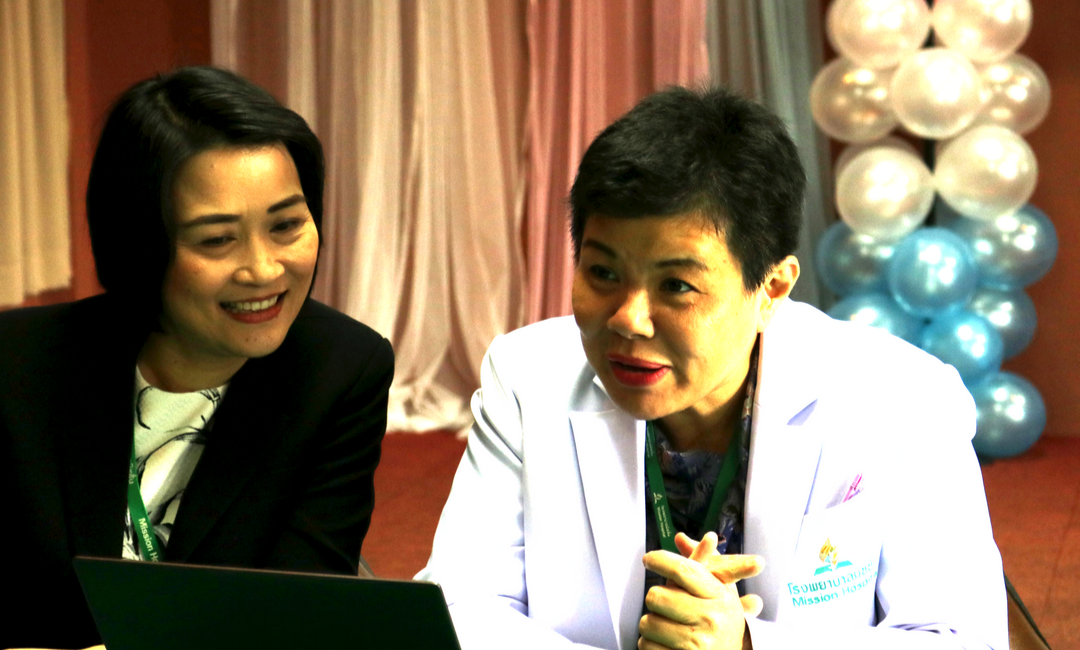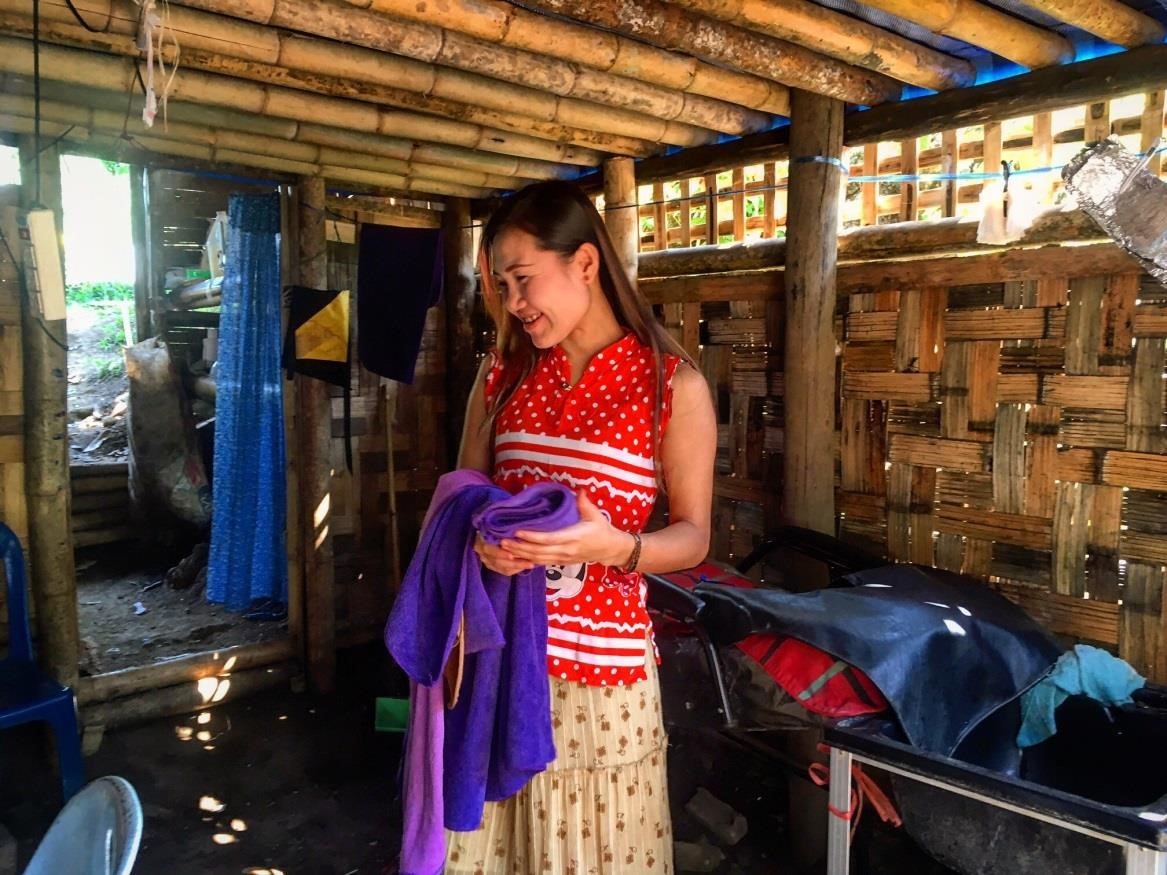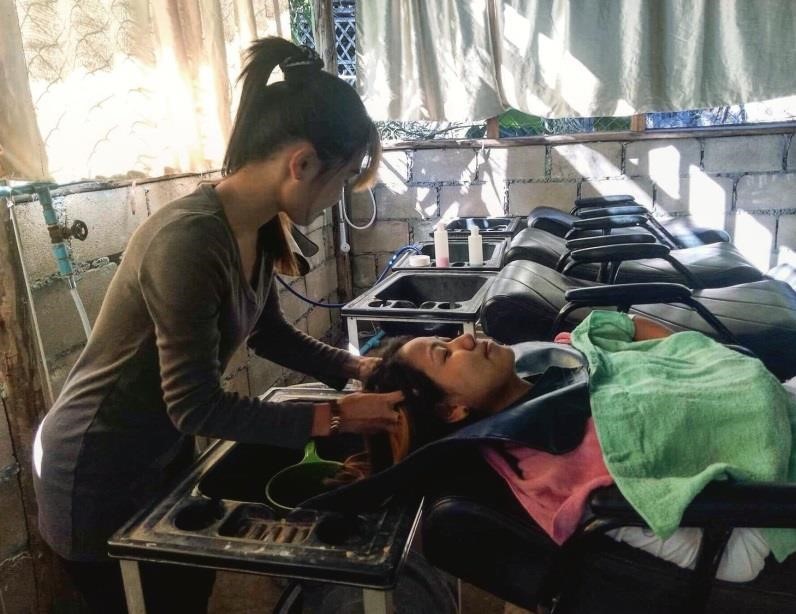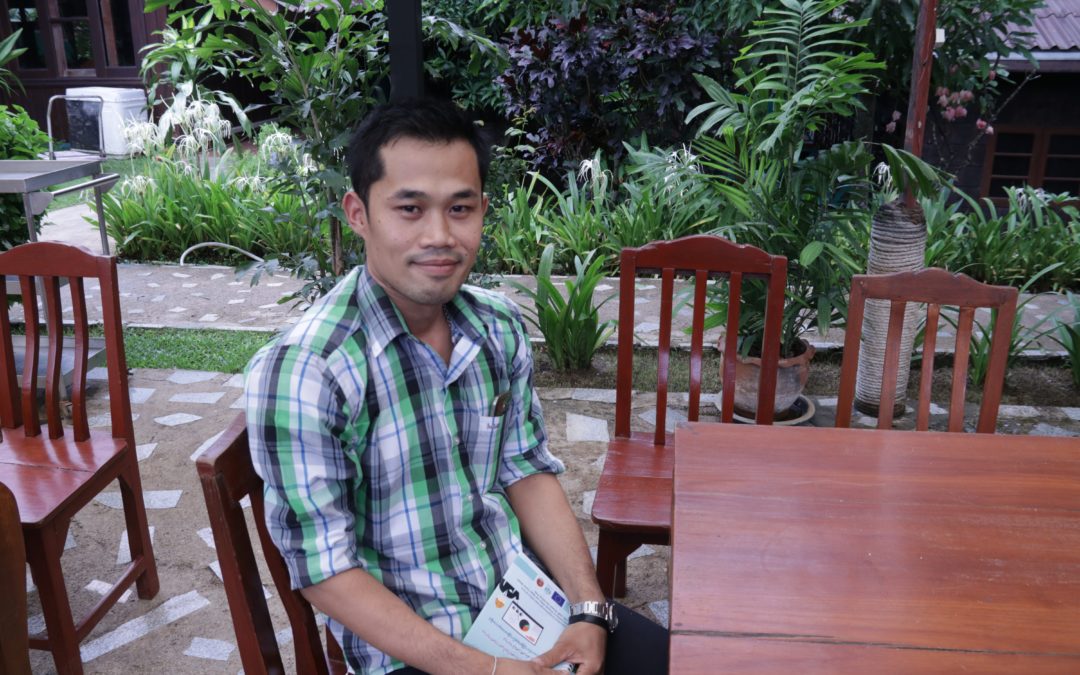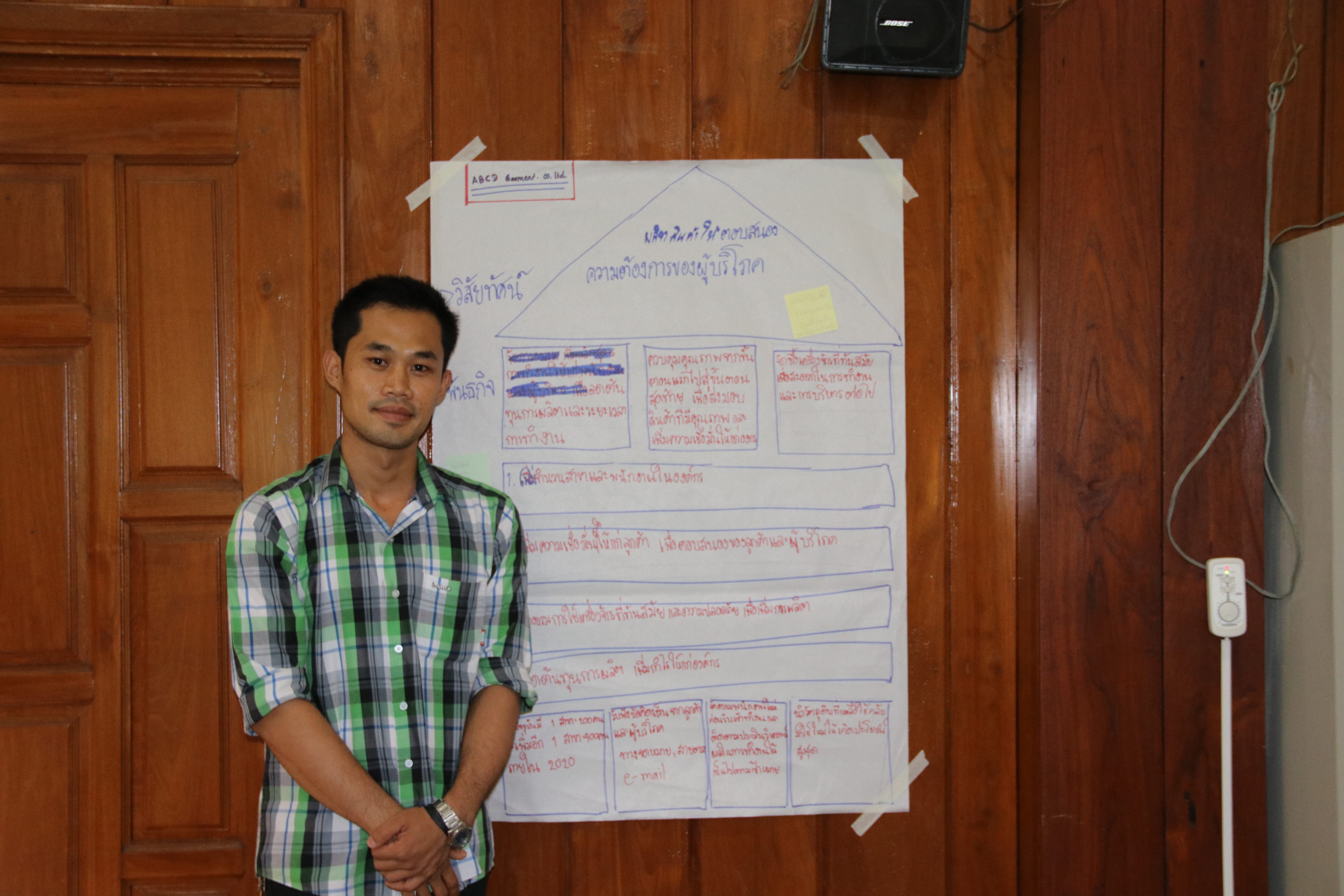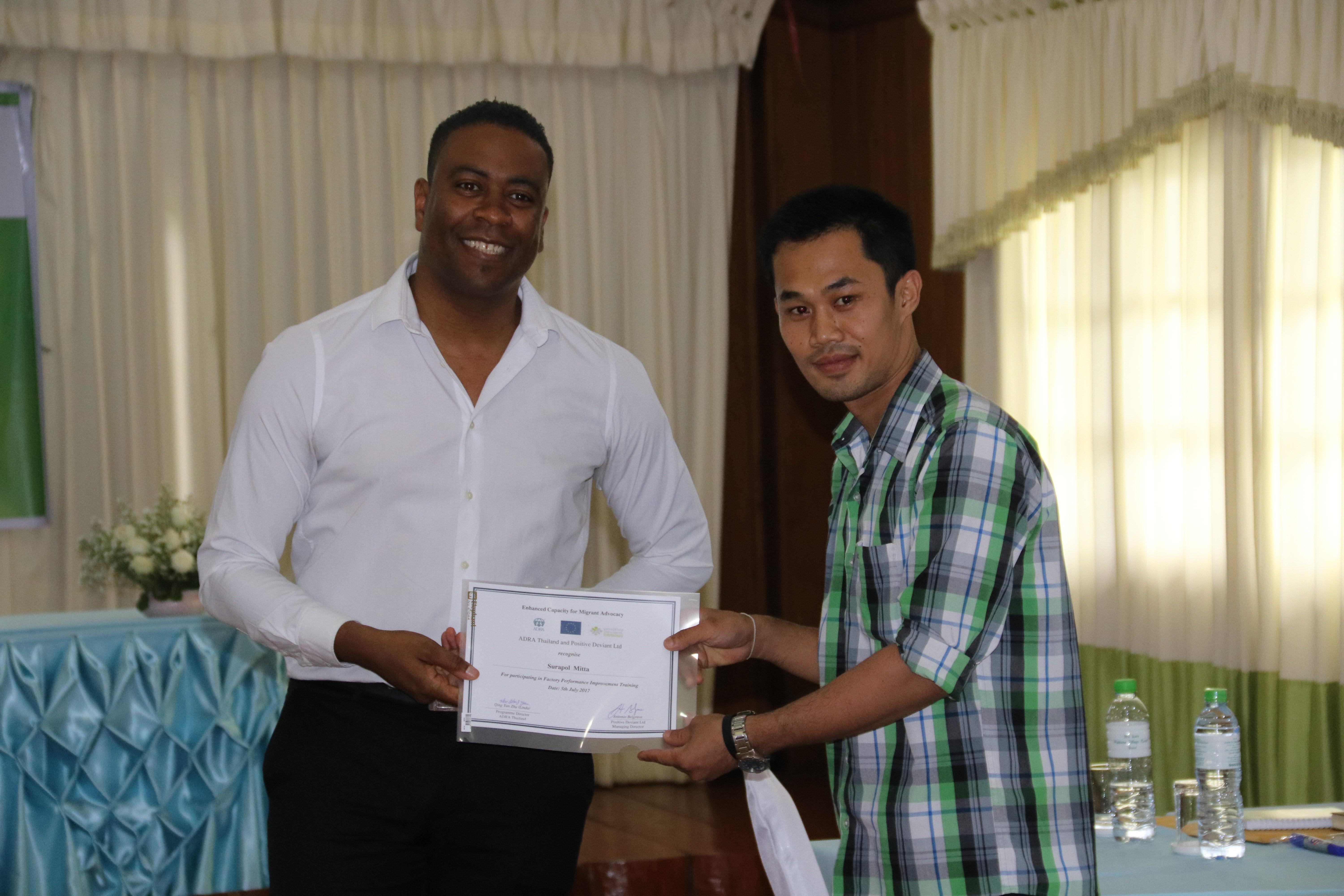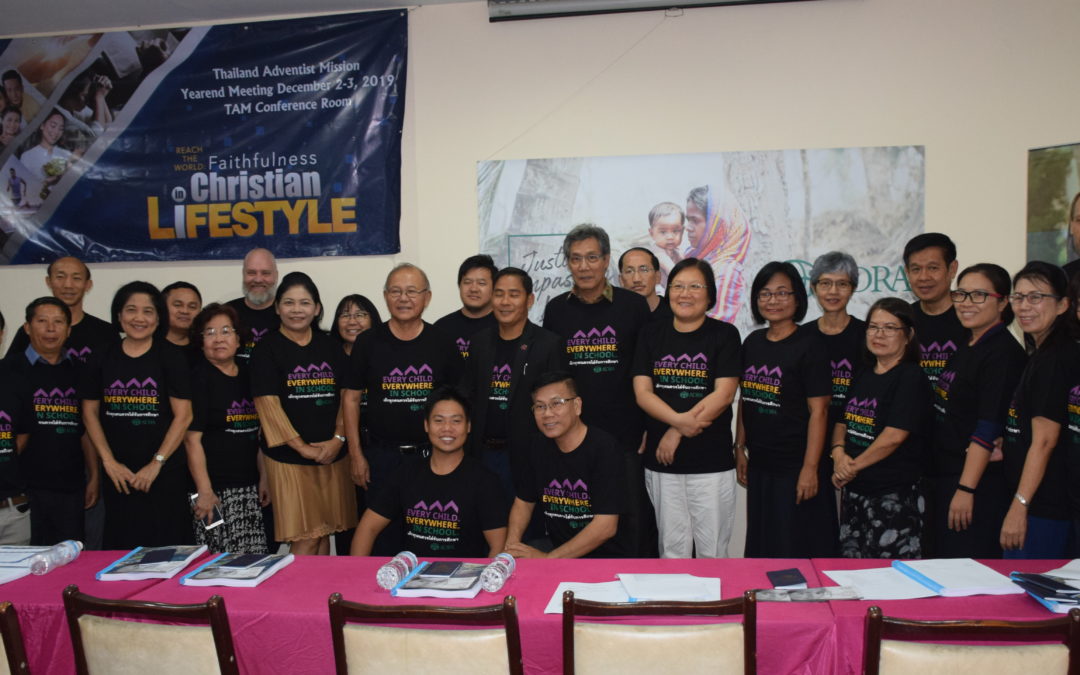
ADRA AND ADVENTIST MISSION IN THAILAND LEND SUPPORT TO GLOBAL EDUCATION CAMPAIGN
ADRA AND ADVENTIST MISSION IN THAILAND LEND SUPPORT TO GLOBAL EDUCATION CAMPAIGN
THAILAND (December 11, 2019) – Following the official launch of the global advocacy campaign, Every Child. Everywhere. In School., held at the General Conference’s Annual Council in October, the Adventist Development and Relief Agency (ADRA) and the Thailand Adventist Mission together kicked-off an education campaign at its year-end meeting on December 2.
ADRA’s Asia Region Director, Mark Webster, introduced the joint advocacy campaign to school administrators and church leaders who attended the meeting.
Following the introduction from Mark Webster, Stephen Cooper, country director of ADRA in Thailand, Pr. Luesak Yangkullawat, secretary of the Thailand Adventist Mission, and Linda Zhu Qingyan, programs director of ADRA in Thailand, gave speeches on the dire situation of children who are not in school.
“Our education campaign aims to be a voice for the 262 million out-of-school children around the world,” says Cooper.
“Here in Thailand, there are more than 200,000 children who are out of school. Some of them are at home taking care of their younger siblings; some are just wandering around where their parents work, and some are into child labor to help generate the family’s income,” says Qingyan. “As these children grow up without education the chances of them being exploited, getting married early, and being unable to overcome the cycle of poverty is very high. The power of educating every child is profound.”
Qingyan added that there is much value in education. “When we educate a child, we don’t just change one life, but the life of their family, their community, and future generations. When every child receives an education, it benefits the whole society. If a girl is educated, she will have the means to support her children, the cycle of poverty could be broken. If we want to change the world, let’s start with educating every child,” she continues.
“Education changes lives. I am who I am today because the church had given educational privilege to my father,” Pr. Yangkullawat says. “In Thailand, there are migrant children and children from slum areas who are out of school; we need to speak out for those who cannot speak as the word of God said.”
The event aimed not only to advocate for education but to also help get signatures showing support for the campaign. Pr. Niratisai Aipan, president of the Thailand Adventist Mission, led the petition signing as he appealed to the meeting attendees.
“To all institutions, workers and members of the Thailand Adventist Mission, I would like to encourage all of you to sign the petition to support the ‘Every Child’ campaign for out-of-school children,” Pr. Aipan says.
Ninety percent of the meeting attendees signed the petition. School administrators, church leaders, along with ADRA, pledged to get 14,000 additional signatures among church members by early 2020.

